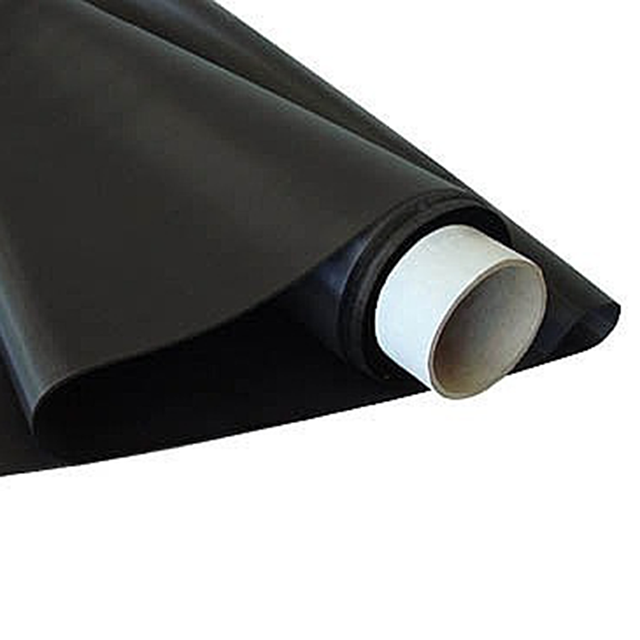Views: 0 Author: Site Editor Publish Time: 2025-09-29 Origin: Site







Does PVC weaken over time? Despite its durability, PVC may degrade under certain conditions.
PVC is widely used in waterproof membranes, construction, and more due to its strength and resistance. However, understanding how it weakens over time is crucial for industries relying on PVC products.
In this post, we’ll explore what causes PVC to weaken, signs of deterioration, and how to prolong its lifespan.
PVC, or Polyvinyl Chloride, is a widely used synthetic plastic polymer. Known for its versatility and durability, it is commonly found in applications like waterproof membranes, construction, and various industrial sectors. PVC is highly valued for its strength, affordability, and resistance to a wide range of environmental factors.
PVC is a strong material due to its rigidity and resistance to corrosion. It can withstand exposure to water, chemicals, and even UV light, which makes it ideal for waterproof membranes and other construction uses. PVC’s ability to endure harsh environments without degrading is one of the reasons it is so commonly used in plumbing, building materials, and even packaging.
Rigidity: PVC maintains its shape and strength under pressure.
Chemical Resistance: It resists degradation from acids, bases, and other chemicals.
UV and Water Resistance: PVC withstands UV radiation and is highly resistant to water damage, which is essential for outdoor and underground applications.
These properties make PVC a top choice for industries that require long-lasting and reliable materials.
PVC is renowned for its long lifespan, often lasting up to 100 years, thanks to its stability and resistance to water. However, various environmental factors can accelerate its weakening. UV exposure, extreme temperatures, chemical exposure, and mechanical stress are key contributors to PVC degradation.
UV Exposure and Sunlight
Ultraviolet (UV) rays from the sun can break down PVC, causing it to lose flexibility and become brittle, especially in waterproof membranes used outdoors. This exposure weakens the material over time, making it more prone to cracks and tears.
Temperature Extremes
High temperatures cause PVC to soften, weakening its structural integrity. In contrast, freezing temperatures can make PVC brittle, causing it to crack or break.
Chemical Exposure
Harsh chemicals in water, soil, or air can degrade PVC by breaking down its molecular structure. This is particularly common in industrial or agricultural settings where PVC is exposed to chemicals like acids, solvents, or oils.
Mechanical Stress and Improper Installation
Poor installation practices, such as incorrect bonding or alignment, can lead to premature degradation. Additionally, mechanical stress from environmental factors like soil movement or physical impact can weaken PVC over time.
PVC is known for its durability, but over time, it can show signs of wear. Look for cracks, discoloration, or brittleness. These are clear indicators that PVC is weakening.
When PVC membranes are exposed to sunlight or extreme temperatures, they can lose flexibility. Cracks and fading are often early signs of damage. If not addressed, this can lead to failure in waterproofing applications. Recognizing these signs early can help prevent costly repairs.
As PVC weakens, it becomes more prone to leaks and breakage. In waterproof membranes, this could result in water infiltration, damaging the structure or materials beneath.
Regular inspections are essential to detect leaks before they worsen. Small cracks or holes in PVC can expand, allowing water to pass through. Timely repairs can prevent further damage and extend the lifespan of PVC membranes.

PVC is a durable material, but like any other product, it requires care to ensure it lasts. Here are a few essential steps to extend the lifespan of PVC, particularly in applications like waterproof membranes.
Proper installation is key to ensuring PVC membranes perform optimally. Professionals should install them to avoid mistakes that lead to long-term issues.
Sealing joints correctly and applying the right backfilling techniques can prevent leaks and degradation. Incorrect installation, such as improper bonding or insufficient bedding, can result in early weakening.
UV rays from the sun can weaken PVC over time, making it brittle. Protecting PVC from UV exposure is crucial, especially for outdoor waterproof membranes.
Example: Applying UV-resistant coatings or using protective wraps on PVC membranes can prevent damage from sunlight. Alternatively, placing the material in shaded areas also reduces UV impact.
Extreme temperatures—both hot and cold—can cause PVC to become brittle or soft. Insulating PVC pipes and membranes helps protect them from thermal stress.
Installing PVC in environments where temperature extremes are minimized can prevent damage. Proper insulation is vital for ensuring long-lasting performance.
Regular inspections are necessary to identify signs of weakening, such as cracks, discoloration, or brittleness. Early detection allows for timely repairs.
Cleaning PVC waterproof membranes regularly prevents dirt and debris buildup, which can lead to blockages. This helps maintain its strength and extends its usable life.
PVC is generally strong and durable, but factors like UV exposure, temperature extremes, and chemicals can weaken it over time.
To protect PVC, ensure proper installation, use UV protection, perform regular inspections, and manage temperature exposure. Taking these steps will help extend its lifespan and maintain its performance.
Q1: Does PVC weaken when exposed to sunlight?
Yes, prolonged exposure to UV rays can make PVC brittle and cause it to lose its flexibility. To prevent this, apply UV-resistant coatings or use protective covers.
Q2: Can PVC be affected by temperature extremes?
Yes, extreme temperatures can weaken PVC. In hot conditions, it may soften, while in cold conditions, it may become brittle and crack. Insulating PVC can help mitigate this.
Q3: How can I protect PVC from chemical exposure?
Avoid exposing PVC to harsh chemicals. In environments where chemical exposure is common, ensure PVC is properly sealed or choose PVC variants designed to resist such chemicals.